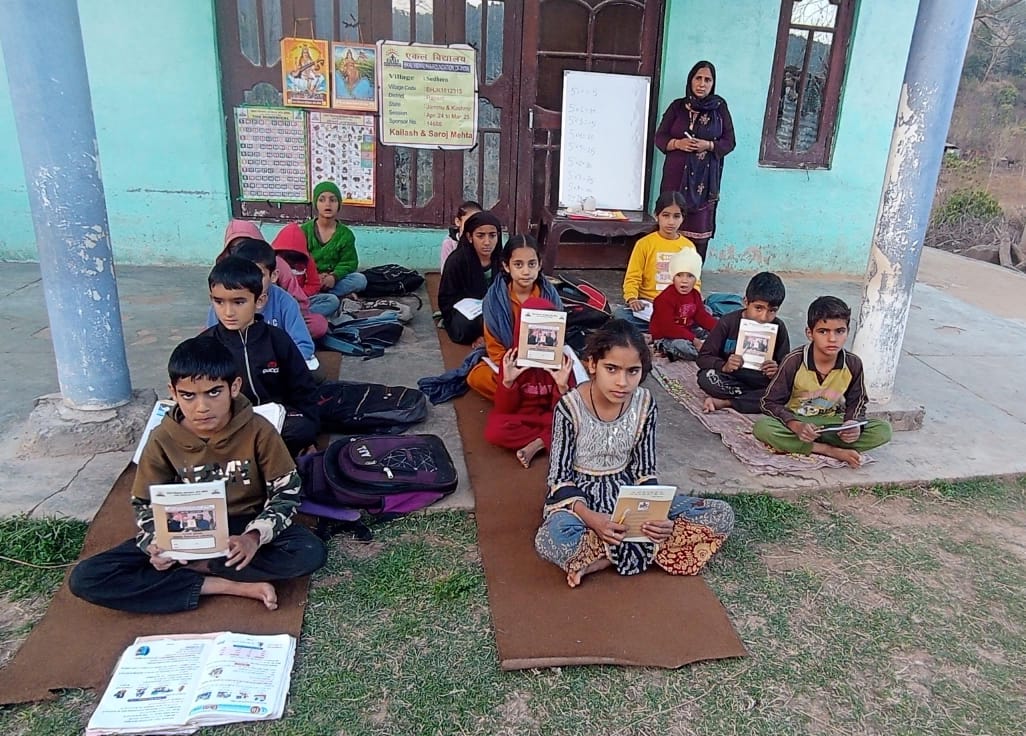Why Do You Need to Know About Revocable Living Trusts?
A well-managed living trust is a solace to your family and a boon to good causes.
The Hindu Heritage Endowment (HHE) wants you to have a good estate plan to protect yourself and your family. It can also help you make a lasting difference to worthy causes like the Iraivan Temple. “Dying intestate” is the ugly legal phrase used to describe an adult passing away with no estate plan, a condition that sets up family and friends for confusion, dissension, delay and conflict at a time of great stress. Many adults die intestate. According to a recent survey by legal publishers LexisNexis Martindale-Hubbell, 58% of American adults don’t have a will, much less a complete estate plan. HHE encourages all families to have complete estate plans. Nowadays, that means having a will, a revocable living trust, power of attorney for property management and an advance health care directive. At death, a will becomes a set of legally binding instructions that govern the distribution of your assets. Some people mistakenly think that a will avoids probate. On the contrary, a will is a ticket to probate court; but probate has the advantage of making sure your assets get distributed as your will directs. It has the disadvantage of being expensive, time-consuming and public. So, are you doing yourself and your heirs a disservice if all you have is a will? A revocable living trust does avoid probate, but what exactly is it? Think of a revocable living trust as a mini-corporation that holds title to your most important possessions: your home, your investment portfolio and your cash reserves. Though you still have complete control over these possessions, you no longer hold them in your name. They are held by your revocable living trust. And just as a corporation does not go through probate when the CEO dies, your living trust avoids probate at your death. Your successor trustee simply steps in and follows the rules and instructions of the trust. Living trusts are useful during life as well. If, for example, you become unable to manage your real estate or finances through illness or accident, your successor trustee can take charge. There’s no costly and embarrassing public conservatorship hearing. Revocable living trusts do have some disadvantages. They are more detailed than most wills, and so the cost of writing them is usually more than a will. Also, you must remember to transfer assets to your trust. If you do not, your living trust will remain an elaborate but empty shell, like a safe deposit box with nothing in it. A living trust needs to be managed and its assets distributed according to its terms. Your successor trustee is supposed to take care of these important and sometimes complex tasks promptly, so choose your trustee with care. A well-managed living trust is a solace to your family and a boon to good causes. Naming the Iraivan Temple Endowment as a beneficiary of a living trust for a percentage of your estate, a specific amount, or a specific property can usually result in a timely distribution at minimum cost. You can use your living trust to create a future endowment fund at the Temple in your name or the name of a loved one. Like the gardens that surround the Temple, your living trust will produce blossoms for a thousand years in the form of harvested income from your fund’s principal. MISSION STATEMENTHindu Heritage Endowment is a publicly supported, charitable organization recognized as tax exempt by the IRS on April 22, 1994. Employer ID 99-0308924. Founded by Satguru Sivaya Subramuniyaswami, its philanthropic mission is to provide secure, professionally managed financial support for institutions and religious leaders of all lineages of Sanatana Dharma. PROFESSIONAL ADVISORSHalbert/Hargrove, Investment Counsel; Sonoda & Isara, LLP, CPA. HHE is a member of the Council on Foundations, an association of more than 2,000 foundations which interprets relevant law and management and investment principles, and of the National Committee on Planned Giving, the voice and professional resource for the gift planning community. I want to participate. Where should I Send My Donation? You may send your gift to an existing fund, create a new Endowment or request information through the address below. Donations may be made online at www.hheonline.org or use the HHE tear-out card in the HINDUISM TODAY magazine to join our family of benefactors who are Strengthening Hinduism Worldwide. Thank you. |

Hinduism Today Lifetime Subscription Fund
Helps cover the magazine’s production and distribution costs









